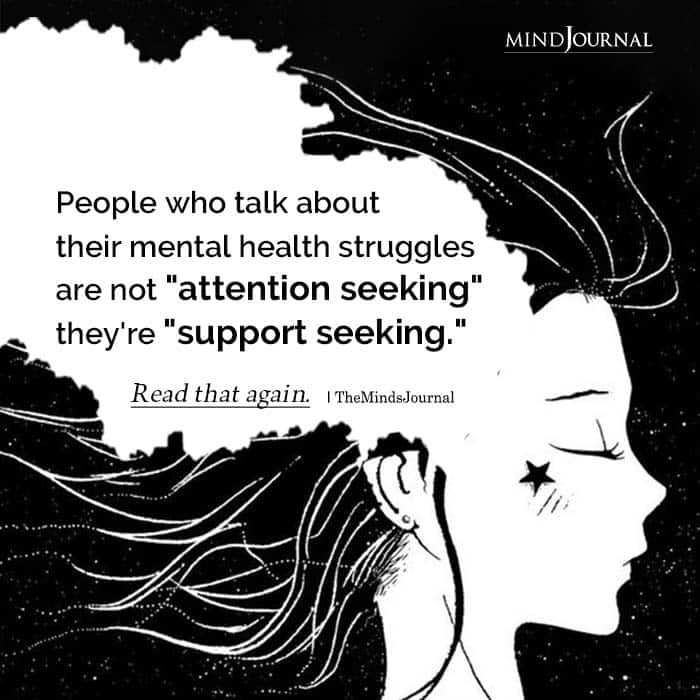Trigger Warning: Suicide, mental illness, racism
Meghan Markle and Prince Harry’s interview has blown up on the internet, and it’s the only thing people are talking about these days. Naturally, people are divided over who is the culprit and who, the victim.
But no matter how controversial or juicy the details of Meghan Markle’s interview with Oprah might be, at the end of the day, people are ignoring probably the most crucial part of the interview: the conversation about mental health.
We might never know what the real truth is, and whether Meghan Markle is right, or the Royal Family. But what is shocking is that even in 2021, people are undermining the impact of mental health issues on a person’s psyche. As someone who has been living with Anxiety Disorder, and Obsessive-Compulsive Disorder (OCD) for the past 12 years, it’s heartbreaking to see people calling Meghan Markle ”attention-seeking” just because she chose to talk openly about her struggles.
It’s 2021, and many people still think that mental illness and mental health issues are myths. Well, guess what? It’s really not. And if more people don’t find it in themselves to treat people with empathy and kindness, then we are just going to go on losing people, just because nobody helped them when they reached out for help.

Acknowledging mental health stigma
Mental health has still got a lot of stigma and negativity attached to it, even today. We have progressed a lot in society, but somehow most people are still very myopic and insensitive when it comes to dealing with mental health issues. So when Meghan Markle openly confessed that she felt suicidal when she was carrying her first son, Archie, people were quick to judge her and term her as ”attention-seeking”.
Well, first of all, that’s really, really messed up. When someone tells you that they have/had contemplated suicide, you never ever think of that as a cry for attention. Any person, be it a celebrity or a non-celebrity, having suicidal thoughts can take a toll on your psyche. And if someone tries to undermine that, it’s all the more difficult to handle it.
The stigma attached to mental health is the reason why so many people suffer in silence and feel scared of reaching out for help. They are scared of the judgment, ridicule, insensitivity, and most importantly, the criticism that comes with it. So many people have ultimately ended their lives because they could not turn to someone for support, that’s scary and heartbreaking.
Research has shown that when a celebrity comes out with their own mental health struggles, especially suicidal thoughts, crisis hotlines, and suicide prevention services have difficulty handling the hundreds of calls that come their way. Another research suggests that when celebrities open up about their mental health struggles, in a way, they sensitize and destigmatize the conversation surrounding mental health, encouraging more people to reach out for help.
Case in point: Years back, when Princess Diana disclosed that she suffers from bulimia, the number of people, especially women who started seeking treatment more than doubled, according to the British Journal of Psychiatry.
Many people tend to look up to celebrities, so when these celebrities openly talk about their struggles, it makes people relate to them more. It makes them feel as if they have some sort of connection with them, due to the same sort of struggles. It makes them seem more human.
If you look at some of the comments in response to Meghan Markle’s revelation that she felt suicidal while carrying Archie, you will see a horrifying amount of apathy, hatred, and negativity. And if that’s not disturbing, I don’t know what is. Here is someone who is saying that there was a time when she contemplated ending her life, and all people are doing is bashing her.
Can you imagine the degree of pain and helplessness someone feels on the inside, that they ultimately decide to end their own life? Think about it.
When it comes to suicide, people will judge and undermine suicidal thoughts, and might even term someone as a “loser” and “weak”. But if someone ultimately ends their life, those same people will say, “They should have reached out”, “I could have helped them if I had known”, and “They did not have to do this. We/I could have supported them through this”. Unfortunately, society and most people stigmatize mental health and suicidal thoughts but mourn suicide.
Related: Suicide Warning Signs: Suicidal Behavior That Are Easy To Miss
Understanding how mental health works
Another major revelation by Meghan Markle in the interview was that allegedly senior family members were concerned about how dark Archie’s skin color was going to be. Now imagine an expectant mother hearing this, and try to understand her feelings about this. Pregnancy is one of the happiest times of a woman’s life, and instead of that if you are constantly trying to stop yourself from falling into a dark, downward spiral, it will feel disturbing, won’t it?
What might not be a big deal for one person, might be a huge trigger for someone else. When Piers Morgan said on national television that Meghan Markle is making all of it up, it made the situation even more disturbing and horrendous.
Many people think that suffering from mental health issues is not a big deal, and it’s just about feeling sad, morose and dejected; but it is so much more than that.
No, you can’t just snap out of it.
No, you can’t just make yourself happy.
No, just “smiling more” won’t make it better.
And no, not thinking about it definitely won’t help.
Struggling with mental health issues day in day out feels like this constant battle that is going on in your mind, and no matter how hard you try, the bad days seem to outnumber the good ones. A war is going on inside of you, but every day you are putting your head up and fighting it without letting anyone know just how exhausting it truly is. Mental illness plays tricks on your mind, makes you question your existence, and pushes you to go to that dark place, which you try so hard to stay away from. Every minute of every day.
The sad part of all this is that everyone suffers from mental health issues at some point or the other. It’s just that some people choose to acknowledge it, come out in the open, talk about it, and even reach out for help, and some people choose to either deny it or try to bury it deep inside their hearts. Whenever someone shares their story about mental illness and how they struggle with it, be it a celebrity or a non-celebrity, they should be treated with understanding, empathy, kindness, and most importantly respect.
Be it Heath Ledger, Marilyn Monroe, Robin Williams, or Chester Bennington, being a successful personality does not make you immune to this. Everyone deserves love, support, and understanding when it comes to dealing with something as painful as this.
Related: 18 Powerful Ways We Can Reduce the Mental Health Stigma
Working towards happiness and taking that crucial first step
Again, it’s 2021 and we need to be better. We need to get out of that narrow-minded mentality that people who talk about their mental health struggles are looking for attention, have a personal agenda, or an ulterior motive. So stop making people feel bad about being human.
People who have openly talked about their struggles, thank you for speaking out about something that a lot of people still don’t understand, and even refuse to acknowledge. You have a lot of courage for doing this, and you deserve nothing but the best. Just hold on, take one day at a time, and everything will be better. There is always light at the end of the tunnel, and never ever stop talking about how you feel. You’ve got this!
People who are still unsure and scared of reaching out for help, please don’t suffer in silence. You don’t deserve to suffer in silence. Talk to your loved ones, especially those people who love you unconditionally and would always be there for you. If you don’t feel comfortable or ready to talk about this with your family and friends, then get in touch with mental health services, and hotlines for more support, advice and information about mental health struggles.
Going for therapy can yield great results when it comes to battling mental illness. It might seem a bit challenging initially opening up to someone you don’t know, but hang in there. Continue your sessions, and you will see great results after a while. You will not only feel better, but you will also realize that happiness doesn’t have to be a distant and unachievable dream.
No matter what people say, there is nothing wrong with you, you are not looking for attention, and you are most definitely not a “loser”. You are human just like the rest of us, and you deserve every bit of happiness, smiles, stability, and love that life has to offer.
You are not alone, and you will never be alone. And you will smile again.









Leave a Reply